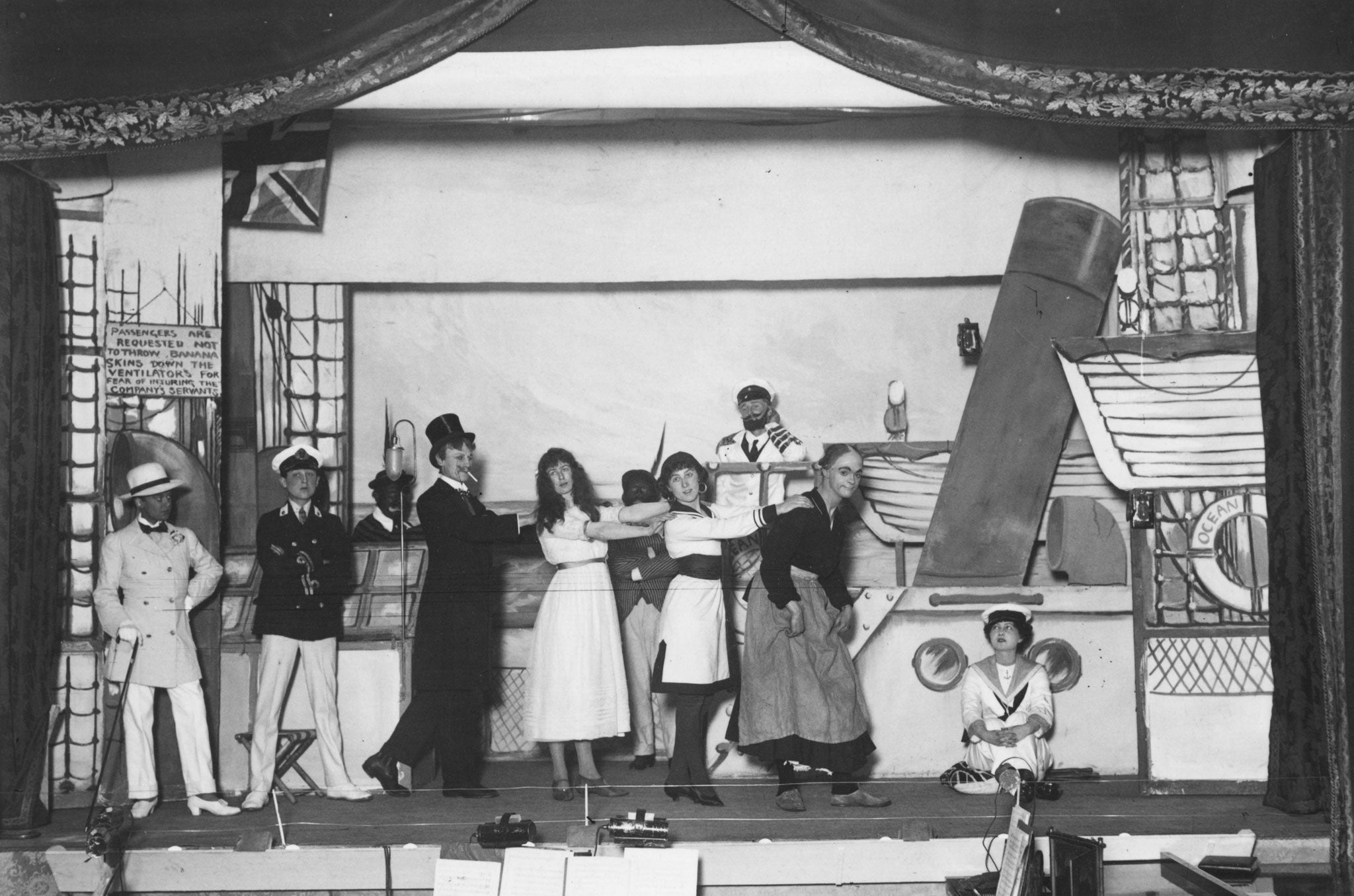Save our regional theatre, because if you can’t tread these boards, the show’s over
It's the Government's responsibility to fund regional theatre; plus are Albanians the last Europeans about which TV producers can be rude?


There’s been some histrionic weeping and wailing this week by leading lights of the British theatre. They’ve warned us that threatened cuts in the Government’s arts budget could have a “catastrophic” effect on regional playhouses. Others have warned that the decline in repertory theatre means that future generations probably won’t have any more Judi Denches or Michael Gambons to light up their lives. It’s a very sad and gloomy chorus. If it could all be reduced to a single gesture, it would be that of Sir Donald Wolfit, the greatest theatrical ham, clutching the velvet curtain for support, hand to brow in passionate exhaustion, as he took a curtain call at the end of King Lear.
There are, however, two different theatre models under discussion here. One is the semi-legendary “rep” theatre whose demise was mourned this week by Sir Ian McKellen. In its classic form it was a small-town theatre with a resident company which put on a different play every week, or possibly fortnight. The plays were often wildly eclectic, from elderly standards such as Charley’s Aunt to Molière comedies, and the cast tended to feature the same “juvenile leads” and “character actors”.
A showcase for veteran hamminess, ingénue breathlessness and occasional flashes of brilliance, it was where the young amateur started his or her thespian career, learnt to time a comic line or stand on stage without resembling an outfitter’s dummy. Every actor of a certain generation had stories about their time in rep – playing Malvolio one week and a police sergeant the next. Think of the cast of Alan Ayckbourn’s A Chorus of Disapproval and you have the template.
Sir Ian said that Britain couldn’t henceforth produce actors of the stature of Ms Dench because “the current generation of actors won’t develop into good middle-aged performers because they won’t have been able to live from their work”. But this is disingenuous. The old-fashioned one-play-a-week rep hardly exists any more. And the majority of young actors would rather wait for their big break amid the new multiple choices on television than in draughty digs in Warrington. One may regret the decline of old-style, back-of-the-hall-darling theatrical apprenticeship, but it’s foolish to pretend it's salvageable.
The fate of British regional theatre is a quite different matter. It is in trouble, and it must be saved from penury. One has only to look at last year’s budget cuts to feel alarm for the future: the Shared Experience theatre company at Oxford Playhouse lost all its funding; so did the excellent Exeter Northcott Theatre in Devon; so did the Riverside Studios, where I regularly watched plays in the 1980s. Even the sainted Almeida Theatre, home to a string of hit productions, had its money slashed by 39 per cent.
Not all the casualties were big names. Among them was the Northumberland Theatre company. It might not put on plays that transfer to the West End, as many regional theatres do, but the company travels to remote villages and unites local communities for a few evenings in performance and words, light and colour, and inspires them with wonder as only the arts can.
Danny Boyle says he was inspired to be involved in the arts by working as an usher in the Bolton Octagon. London teenagers of my generation, who seldom had the chance to frequent the West End, were bowled over by seeing Equus at the Wimbledon Theatre or the 7:84 agitprop company at the Battersea Arts Centre. Even when cinemas and TVs came to preoccupy our leisure hours, stage performance smacked us amidships just as Shakespeare and Webster would have smacked our ancestors.
The Government is keen, as always, to stress the importance of private sponsorship or philanthropy, to underwrite local productions without bothering the public purse. If, they argue, there are sufficient numbers of Medicis out there, the arts will survive. But philanthropy, as Nicholas Hytner has observed, tends to target the metropolis and go where public subsidy has led. Only 20 per cent of private funding helps the ambitious but cash-strapped companies of Durham or Coventry.
The responsibility for saving regional theatre should rest squarely with central government. If local councils are given less money to parcel out, and asked to decide for themselves where it should go, local theatres will inevitably suffer. Decisions about arts funding should be made at the hub. It really is up to the new Culture Secretary, Maria Miller, to ensure that the rich but fragile web of local theatres across this country does not get slashed by borough-council short-sightedness or allowed to die of neglect. Or that really will be something to chew the furniture about.
How come Albanians are such fair game?
I caught a preview of a new Channel 4 drama called The Fear, out next month. It concerns a Brighton gangster called Ritchie who finds his empire threatened by interlopers. They deal in girl-slave trafficking, drug-running and the like, and their methods are brutal; they include dismembering the limbs and gouging out the eyes of anyone who crosses them. They live in a prefabricated slum and are all hideous, vicious and murderous. And they’re Albanian.
Watching them wage battle in the streets and fields of East Sussex, I couldn't help wonder if these inoffensive, though incontrovertibly rustic, people are the last Europeans about which programme-makers can be casually rude. You can’t feature Turks, Greeks, Croatians, Armenians or Kazakhs in negative roles on TV shows today without incurring diplomatic wrath. But Albanians are fair game, it seems. Or is it because the producers assume they haven’t any televisions?
Join our commenting forum
Join thought-provoking conversations, follow other Independent readers and see their replies
Comments
Bookmark popover
Removed from bookmarks